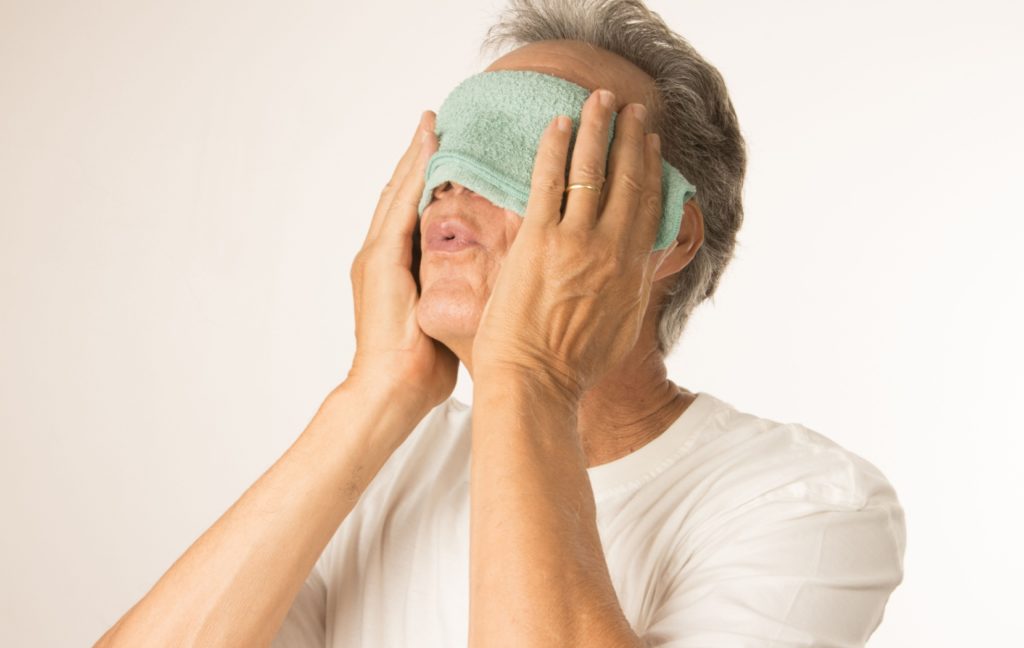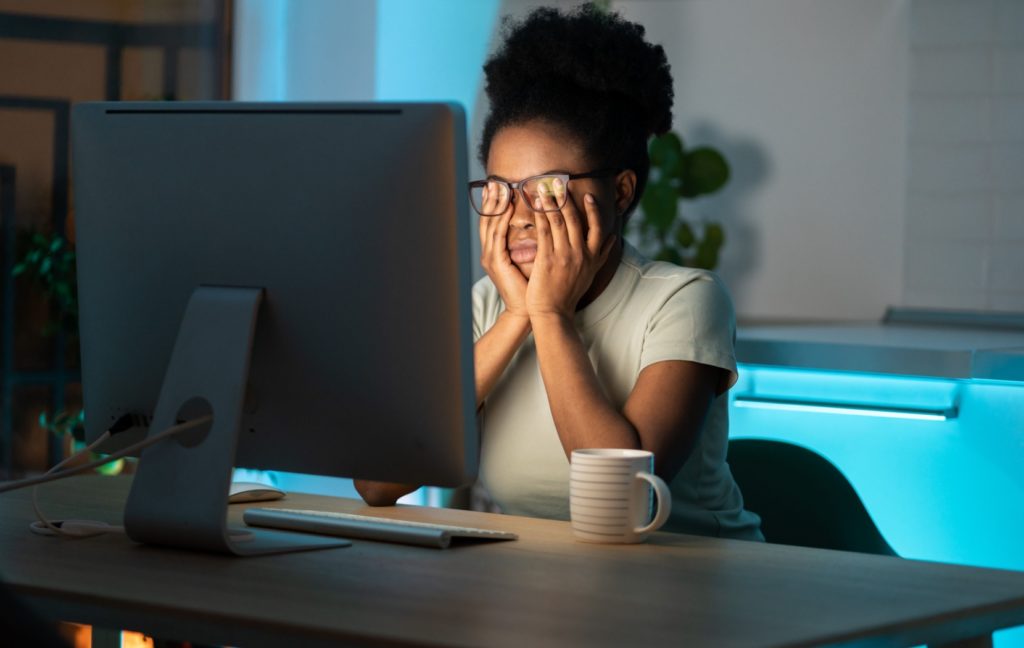Have you been experiencing a strange, heavy sensation in your eyes lately? Maybe it’s an ongoing discomfort or a sudden tightness that’s hard to ignore. Eye pressure can feel concerning, but thankfully, it’s often manageable and your optometrist can help you find the root cause.
Pressure in your eyes can be caused by common eye conditions like:
- Eye strain
- Sinus congestion
- Glaucoma
- Allergies
- Tension headaches
- Dry eye
What Does Eye Pressure Feel Like?
Eye pressure isn’t typically painful, but it can feel uncomfortable. People often describe it as a dull ache, heaviness, or fullness around the eyes, forehead, or even temples. Some may experience blurred vision or sensitivity to light alongside the pressure.
While mild, temporary pressure isn’t usually a cause for alarm, persistent or worsening sensations could signal an underlying issue that needs attention.
Common Causes of Eye Pressure
There are several reasons why you might feel pressure in your eyes, ranging from harmless to more serious conditions. Here are the most common culprits to consider:
Eye Strain
Have you been glued to your phone, laptop, or tablet recently? The culprit behind that eye pressure could be digital eye strain. Staring at screens for long periods without breaks can strain the muscles around your eyes, causing discomfort, headaches, and blurred vision.
Eye strain can also be caused by overworking the muscles around your eyes. Undiagnosed visual issues like nearsightedness, farsightedness, and astigmatism can all lead to frequent eye strain which could lead to pressure behind the eyes.
Sinus Congestion
If you’re battling a cold, allergies, or sinus infection, your sinuses might be to blame. Sinus congestion can create pressure around your eyes, cheeks, and forehead due to blocked nasal passages.
Glaucoma
Glaucoma is a serious condition caused by increased pressure inside the eye, which can damage the optic nerve. It’s often symptomless in its early stages, but some people with acute glaucoma may experience intense eye pressure, blurred vision, or even nausea.
Allergic Reactions & Eye Allergies
Itchy, watery eyes from allergies can also lead to eye pressure. When your eyes come in contact with allergens like pollen, dust, or pet dander, they can trigger inflammation and swelling in the tissues surrounding your eyes.
Tension Headaches
Tension headaches, often triggered by stress, poor posture, or dehydration, can lead to a feeling of pressure around your eyes and forehead.
Dry Eye Syndrome
When your eyes don’t produce enough tears—or the right kind of tears—it can lead to dry eye syndrome. This condition often results in eye discomfort, sensitivity to light, and sometimes a feeling of pressure or fatigue.
When Should I Be Concerned About Eye Pressure?
While most causes of eye pressure are minor and aren’t cause for alarm, there are certain red flags to watch for. You should seek immediate medical attention if you experience any of the following alongside eye pressure:
- Sudden, severe pain in or around your eyes.
- Sudden loss of vision or blurred vision.
- Halos around lights.
- Nausea or vomiting.
- Eye redness with intense discomfort.
These symptoms could indicate serious conditions such as acute glaucoma, optic neuritis, or retinal detachment, which could lead to vision loss or may require intensive medical treatment.

How to Relieve Eye Pressure
Here are some tried-and-tested ways to relieve eye pressure and promote better eye health:
- Take screen breaks. Digital eye strain is one of the most common causes of eye pressure. Be mindful of your screen time and use the 20-20-20 rule to rest your eyes. Every 20 minutes, take 20 seconds to look at something 20 feet away.
- Drink enough water. Dehydration can make eye pressure worse, so keep sipping water throughout the day. You should aim for eight cups of water every day.
- Use warm and cold compresses. Depending on the cause of your discomfort, a compress can ease tension or reduce swelling around your eyes.
- Get quality sleep. Lack of rest doesn’t just make you feel tired—it makes your eyes feel the strain as well. Aim for 7–9 hours of sleep per night to meet your sleep needs.
- Wear the right eyewear. If you haven’t had your eyes checked recently, it may be time to go in for an eye exam. Undiagnosed visual problems like myopia may be putting extra strain on your eyes, leading to eye strain and feeling pressure behind your eyes.
Take Your Eye Health to the Next Level
Eye pressure is usually harmless and temporary, but that doesn’t mean you have to put up with it. Simple lifestyle changes, regular hydration, and prioritizing your eye health can make a world of difference.
However, if the discomfort persists or you experience any of the warning signs mentioned earlier, don’t hesitate to consult an eye care professional. At Total Vision Bonita, we are here to help you get to the bottom of your eye discomfort. Book an appointment today.


